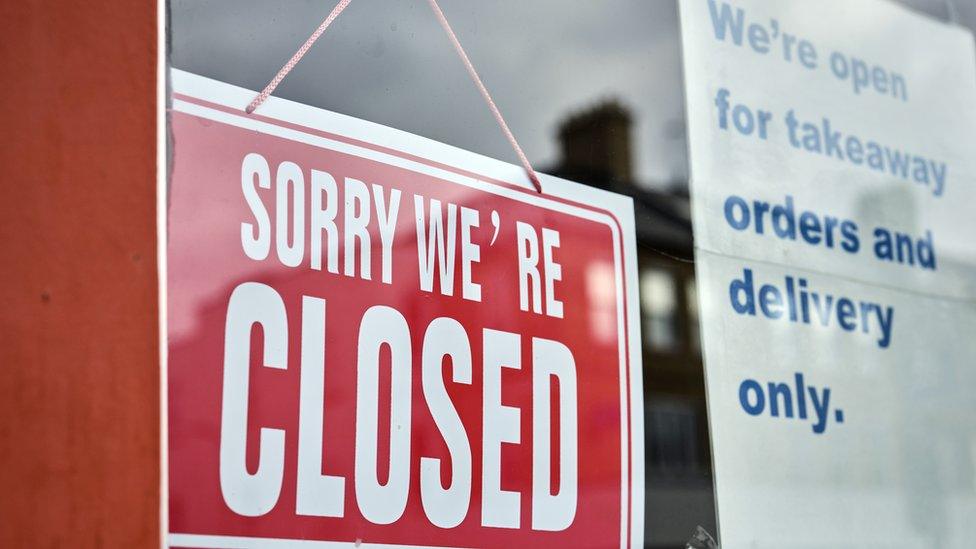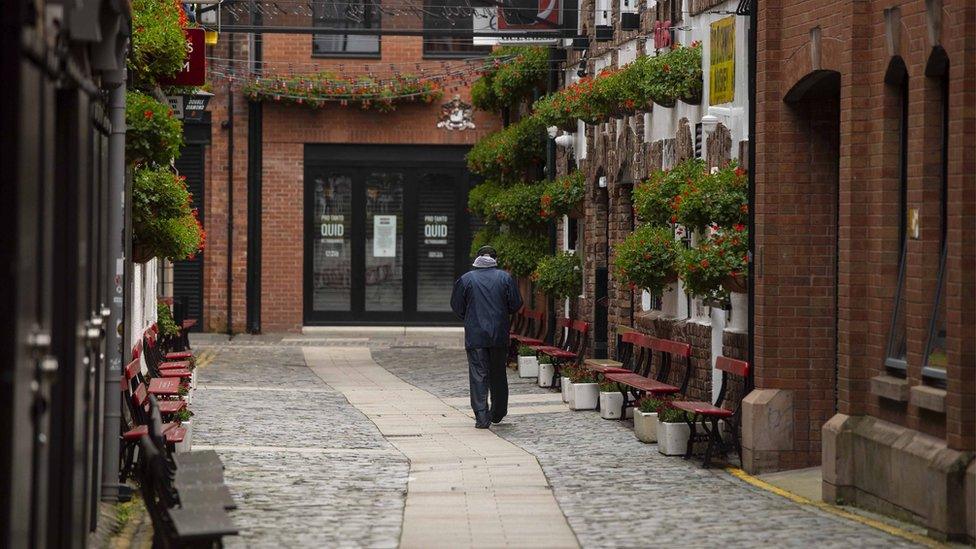NI furlough claims rise by more than a third in three months
- Published
- comments

The number of people on furlough in NI rose by more than a third between October and December, according to the latest data from HMRC.
The Coronavirus Job Retention Scheme pays 80% of a worker's wages up to a cap of £2,500 a month.
The scheme was due to run out in October, but was extended and will now run until the end of April.
On 31 October, 68,000 people were on furlough - that rose to 94,800 by the end of December.
The provisional data for December showed there were slightly more women on furlough (48,000) than men (46,800).
HMRC said Belfast was the constituency area in Northern Ireland with the highest number of people furloughed at 16,000, a take-up rate of 11%.
Meanwhile, 52,000 self employed people in Northern Ireland claimed for the third grant of the Self Employment Income Support Scheme.
On Thursday, Economy Minister Diane Dodds called on Chancellor of the Exchequer Rishi Sunak to extend both the Coronavirus Job Retention Scheme and the Self Employed beyond April 2021.
Mrs Dodds said the figures were startling and underline the "continued costs of Covid-19 on individuals and their livelihoods".
"I have always been clear that the furlough and the self-employed schemes are essential and must remain in place until there are clear signs of economic recovery.
"It is so important that we get infections under control and allow people and business to get back to work as soon as is feasible in order to begin the process of recovery" she added.
"However, these figures demonstrate that too many workers are still reliant on this essential support.
"Therefore it is too early to consider stopping it."
This is a grant worth 80% of average monthly trading profits in a lump sum covering three months, capped at £7,500.
Northern Ireland was the region with the highest take-up rate of the scheme at 62% with £143m of claims submitted.
The industries which accounted for most claims in Northern Ireland were construction (33%), agriculture (7%) and transportation (8%.)
Three quarters (75%) of self employed claimants in Northern Ireland were male.
Related topics
- Published25 November 2020

- Published22 October 2020

- Published30 September 2021
